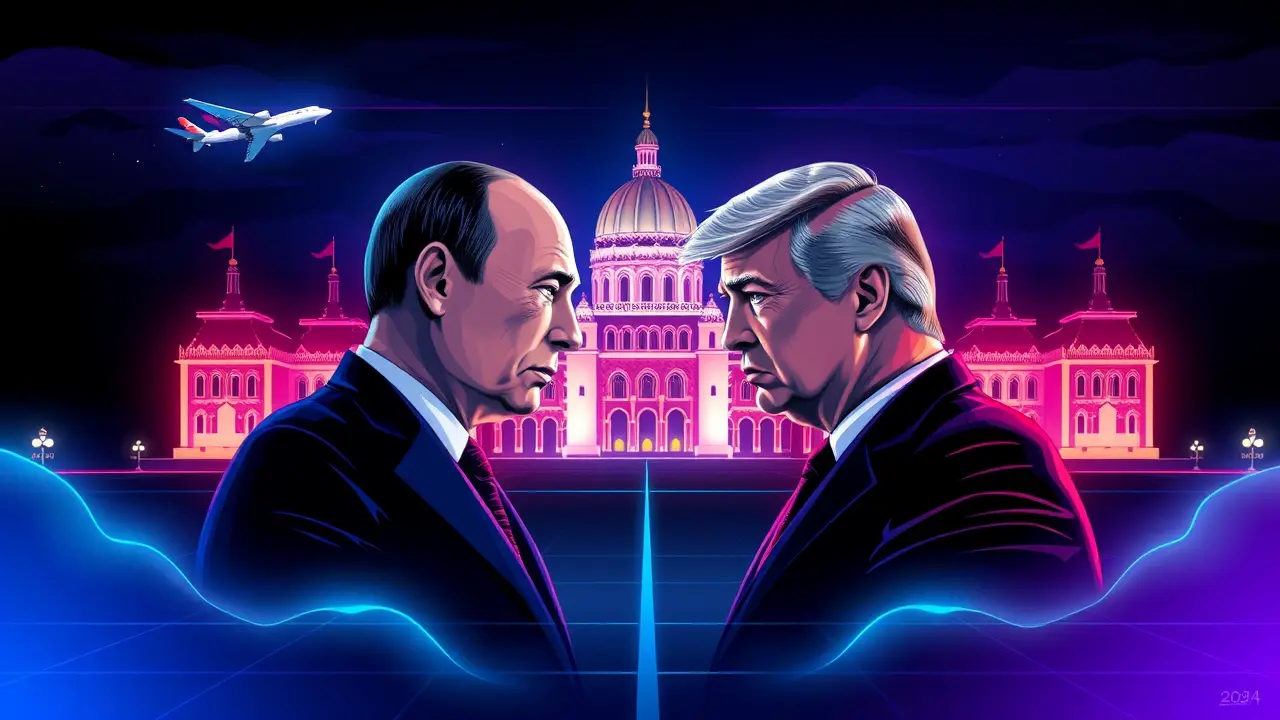Potential Putin-Trump Budapest Meeting Faces Travel Hurdles
The geopolitical chessboard is trembling with the possibility of a high-stakes gambit: a potential meeting between Vladimir Putin and Donald Trump in Budapest, a maneuver fraught with logistical and political peril that could recalibrate the international order. For Putin to even set foot in the Hungarian capital, a nation still within the NATO alliance he openly challenges, he must first navigate a gauntlet of travel complications that are anything but simple.The primary hurdle is the arrest warrant issued by the International Criminal Court (ICC) for alleged war crimes, a legal thunderclap that severely restricts his mobility. While Hungary, unlike the United States, is a signatory to the Rome Statute that established the ICC, Prime Minister Viktor Orbán’s government, long cultivated as a friendly outlier within the EU, would face an immediate and profound crisis of allegiance.Would Orbán, a staunch defender of what he terms 'illiberal democracy,' risk the fury of Brussels and the potential for severe sanctions by hosting a wanted world leader, effectively shielding him from international justice? This single question encapsulates the broader tension between national sovereignty and the post-World War II framework of international law. Beyond the legal quagmire lies the intricate logistics of moving a head of state who is a prime target for intelligence agencies worldwide; his travel would require a massive security apparatus, likely involving advance teams of FSB agents, the temporary closure of airspace, and a motorcade route sealed from public view, turning Budapest into a temporary fortress.The choice of Budapest itself is a deeply symbolic act, a nod to Orbán’s Hungary as a perceived bridge between a resurgent Russia and a politically divided West. For Trump, such a meeting, occurring amidst a heated presidential campaign, would be a political high-wire act.His supporters would likely frame it as a masterstroke of statesmanship, a demonstration of his unique ability to engage adversaries where the current administration cannot. Conversely, his critics would lambast it as a dangerous legitimization of a leader accused of atrocities, undermining both U.S. foreign policy and the moral authority of the West.The potential agenda is a minefield of global issues: any discussion on Ukraine would immediately undercut the unified front President Biden has struggled to maintain, potentially offering Putin a path to negotiate a settlement that partitions Ukrainian sovereignty. Talks on nuclear arms control, while ostensibly positive, could bypass established diplomatic channels and create a volatile, two-tiered system of international security.The risk of a verbal gaffe or an unsecured promise made in such an informal setting carries the weight of shifting market confidence and military postures overnight. Historically, such leader-to-leader summits, from Reagan and Gorbachev in Reykjavik to Trump’s own dalliances with Kim Jong-un in Singapore, have carried a mix of high drama and uncertain outcomes.The Budapest scenario, however, is uniquely combustible because it exists outside the official diplomatic playbook, orchestrated by two of the most unpredictable and dominant figures in modern politics. The ripple effects would be immediate and severe: European allies would be thrown into disarray, forced to reconsider their security dependence on a United States whose likely future president is conducting a parallel foreign policy.China would be watching closely, calculating how a renewed Trump-Putin axis might affect its own ambitions in Taiwan and the South China Sea. The very architecture of alliances like NATO, already strained, could face its most significant stress test since the Cold War. In the world of political risk analysis, this is a high-impact, low-probability event—but in the volatile landscape of 2024, low-probability events have a habit of becoming reality, and the world must prepare for the seismic shockwaves that would follow if Air Force One and a Russian Ilyushin Il-96 were to land on the same tarmac.
It’s quiet here...Start the conversation by leaving the first comment.
